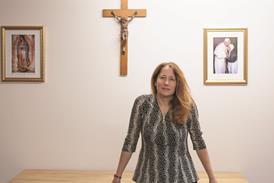
I don’t mind if people disagree with me in matters of theology. The Bible has many nuances and each of us needs a great deal of grace and wisdom to accurately discern the heart of God on each matter.
Disagreement is part of the reality of being one body made up of millions of humans. Hence, when people interpret the Bible in a different way to me, I am rarely offended.
I believe God is much more interested in our ability to walk in love (regardless of our theological convictions) than to walk in being right. After all, when Jesus stated the identifying marker of the Christian in a broken world, he didn’t say it was correctness of theology but instead focused on something much more simple, and far more challenging – our love (John 13:35).
How tragic, then, that we would trample each other in our demeaning language in an attempt to prove how accurately we have understood the scriptures. God help us. Help all of us – not just those who disagree with me, but help me even as I write this. It is remarkably easy to point out a speck in another’s eye without noticing the entire tree in your own.
This afternoon I listened to a message entitled Does the Bible Allow a Woman to Preach? that disturbed me, not because its convictions are the opposite of my own (which they are), but because the speaker stated that this debate was ongoing “in spite of the clarity of Scripture”, implying that his conclusions were the only accurate ones and any who disagree do so in rebellion to what has been made abundantly clear by God.
To read 1 Corinthians 14 as a foundation with which to stop women from speaking in church, as MacArthur does in this sermon, is to disregard Paul’s own writings within the very same letter (1 Corinthians 11) and to create a theological schizophrenia within the heart of the Apostle. Even some of the staunchest complementarian scholars would not use 1 Corinthians 14 as a foundation for their arguments to limit the role of women in the Church.
The problem is that 1 Corinthians 14 is anything but clear given the wider teaching of the letter and the fruit of the Apostle’s own ministry (see, for example, Romans 16). With this in mind, here are a few suggestions for how we might better approach this conversation in the midst of disagreement:
- Please let’s stop pretending that the verses in question are simple. To do so implies that those who have a different view point are those who want to ignore what the Bible clearly states. That could not be further from the truth – on both sides of the debate. To belittle the complexity of the argument in order to belittle those who might disagree with you misleads your listeners and leads them to think of others in an unjustifiably negative light.
- Please let’s stop pretending that only rebellious women or weak-willed men are those who believe that the Bible allows women to preach and have authority in the Church. Neither of those caricatures are true. In using language like that you misrepresent the debate to those in your hearing who may not have read up on the conversation yet. Undermining others to prove your point should never be necessary. Please let’s remember that being right is not the aim of Christianity. Memorizing Scriptures and being able to debate them eloquently is not the aim of Christianity (if that was the case, the Pharisees would have been first into the Kingdom). If, in our debates, we lose sight of loving each other and our voices sound more like the one who accuses than the Father who welcomes us in, we are on dangerous ground indeed.
- Finally, please let’s remember that ‘Speaking the truth in love’ (Ephesians 4: 15) is not an excuse to criticise, but rather permission to call one another into Christlikeness. Truth is not primarily an idea, he’s a person, and he lives inside of you and me. It is loving indeed to speak this kind of truth to one another. But if our love does not have the identifiable features found in 1 Corinthians 13, it is not really love but religion masquerading as affection. God help us to know the difference.
Katia Adams is an internationally recognised Bible teacher and church leader. She is the co-director of Frequentsee, author of Equal, wife to Julian and mother to two children.
Premier Christianity is committed to publishing a variety of opinion pieces from across the UK Church. The views expressed on our blog do not necessarily represent those of the publisher.



























